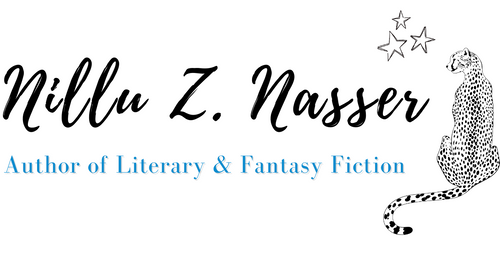There is a frail old lady in our neighbourhood, who wanders the streets in the afternoon dressed in a sari. The saris are always tatty and loosely worn. The old lady passes fellow pedestrians without acknowledging their presence. It is as if she does not see them at all. If you say hello, she barely wakes from her reverie. She responds almost unwillingly in a voice which reverberates with melancholy and then continues her slow progress up and down the street. Sometimes she sits on a garden wall to rest. The corners of her mouth are downturned and her stare, straight ahead, is always blank.
I think of this lady sometimes. Perhaps it is because she is Indian. She could be my grandmother. Mostly it is because I’d like to know what her story is. I’d like to understand the lines on her face, the reason for her sorrow and what would make her smile. I would like to know whether she chooses to wear her sari like that or whether her fingers are no longer dextrous enough to manipulate the material while she is dressing. I’m curious about what she chose to do with her life and whether she has any regrets. I’d ask her if she feels at home in this largely white suburban part of London. I’d ask her what home is to her. I would listen to her story, as a voyeur, a psychologist and as a daughter. I’d record her story. Then I’d distil my version of her truth by peppering it with fiction.
How do we decide which stories are worth recording? I see love, hopelessness, joy and betrayal in every face I encounter. We collect our impressions of one another as if they are collages: snapshots of each other’s souls taken from a fleeting conversation, a misunderstood expression, the way we dress or how easily we smile. The knowledge we acquire as we age is often untransferable, lost in translation and given up to the universe when we depart. We love and are surrounded by those who love us in return, yet still we are strangely alone. Even the best communicators cannot impart the web of their thoughts from their own mind to another’s. However connected and accepted we feel, however honest we are, our understanding of another person’s story is filtered through our own perceptions and experiences. There is no plug in and download function. Thankfully.

Phot by Eddy Van 3000
What this means is that each individual story, in its truest essence, gets lost. This happens all the more if we are too self-centred or busy to ask how other people are really doing, and to listen. I know time is a factor. We can’t listen to everyone or record every story. We can, however, choose to give a few minutes of real attention to those we love. One of my biggest regrets is not speaking enough to my granddad about his experiences of leaving Uganda in the 1972 exodus after Idi Amin kicked out the East-African Asians. Nana was the head of one of many families, which became political refugees overnight and had to build a life from scratch elsewhere. I was in my early twenties when we realised nana did not have much time left, but by then, on his death bed, he was no longer interested in telling his story. He was a wonderful man.
There are stories all around us. We drove across the country to visit friends in the village of Friesthorpe last week. There was a small church, which would have seated perhaps eighty people. Inside the church there was a small pulpit and electric heaters hanging from the ceiling. The pews held oblong tapestry cushions that showed images of special occasions or had been donated in memory of lost loved ones. At the front of the church were an enormous Bible and hand annotated prayer book dating from the 1800s. I leafed through the ageing pages guiltily, surprised the books weren’t behind glass. Afterwards, we took our time wandering through the graveyard outside, reading the worn headstones. One gravestone marked the place where a former church Reverend and his thirteenth daughter, a poet, had been laid to rest. A plaque inside the church revealed that the same family had lost five sons in the Great War. To me it is comforting to walk through a cemetery, reading the names of dead strangers and working out how old they were when they died. The individuality of headstones reflects how different we are in life. The engravings tell a story.
If only inanimate objects could talk. Can you imagine what the paintings on your walls have seen, what the tree at your window could tell you about the lives of the people who previously lived in your house? All the joyful and sordid details of our lives, played out in plain sight but hidden from all once we are gone. So writer, write. Choose your stories wisely. Write the truth of your life and those around you. Don’t hurry. Do your stories justice. But don’t ignore the sense of urgency you feel in your belly either. Every moment you wait to pick up your pen, there are stories fragmenting, spinning out of your reach into the depths of the universe, never to be heard of again.

 Photo by
Photo by